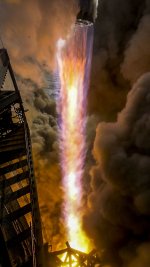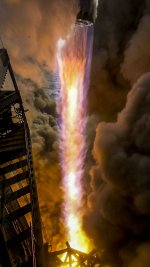Associate
- Joined
- 19 May 2010
- Posts
- 1,452
- Location
- Cheltenham
Apparently the RTG from Appolo 13 re-entered the atmosphere and as far as NASA can tell the container survived intact and hasn't leaked any radiation.
Learnt something new today - I didn't know the Apollo missions carried an RTG!
I never claimed it was easy cheap or quick to get fuel for RTG. Not sure where you got that idea from.
But since you’ve brought it up why don’t you go into more details about how RTG fuel is acquired?
Is immense todays word of the day?
RTGs, or ones that make usuable power, use Plutonium 238, of which there is only one place in the US currently making it and produces the immense volume of 400g per year, having recently restarted production. It's something you can simply buy off a shelf, and the cost is immense.





